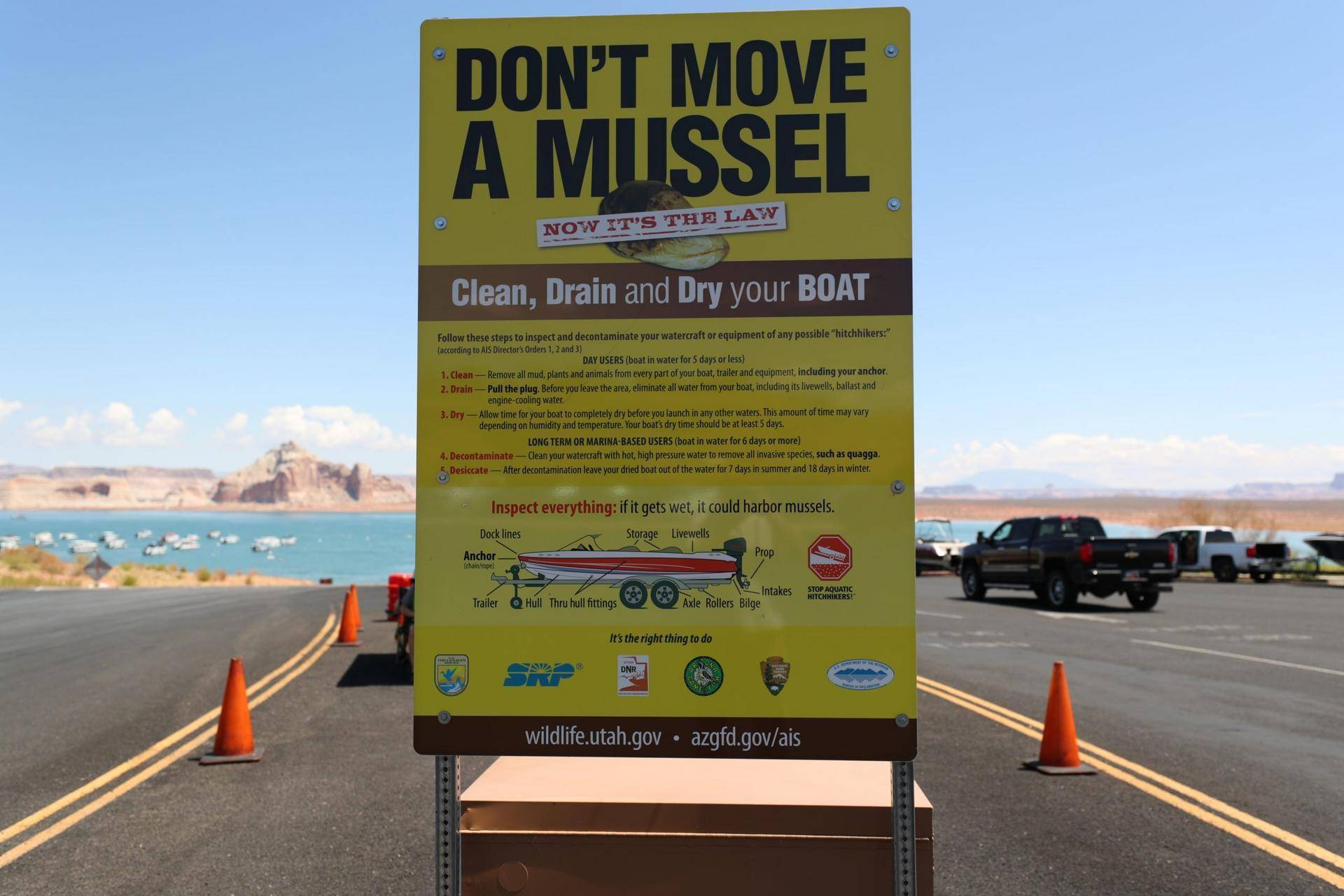DWR News Release
Law enforcement officers and technicians for the Utah Division of Wildlife Resources and other agencies had a hot, busy weekend working to inspect and decontaminate boats across the state. This intensive effort focused on preventing the invasive quagga mussels in Lake Powell from spreading to other Utah waterbodies.
Statewide, Aquatic Invasive Species technicians with the DWR, Utah State Parks, Arizona Game and Fish Department, and the National Park Service inspected 12,147 boats and performed 294 decontaminations from Friday to Monday. Of those total numbers, 401 of the boat inspections and 65 of the decontaminations took place at stations in the Lake Powell area.
During the 2020 Pioneer Day weekend, 19,094 inspections were performed statewide and 453 boats were decontaminated.
“The new dip tank has been running smoothly and has been invaluable for more quickly and efficiently cleaning the boats with more complex systems,” DWR Aquatic Invasive Species Sgt. Micah Evans said. “It has freed up a lot of time for our staff, as well as space at the stations, to inspect and decontaminate the smaller recreational watercraft. Boating numbers at Lake Powell were lower than this time last year, likely due to the lower water levels, but it is still very important for every boater who visits the lake to make sure they aren’t transporting invasive quagga mussels when they leave.”
Statewide, DWR conservation officers issued 100 citations for violations of Utah laws established to prevent the spread of invasive mussels. Fifty-seven of the violations occurred in the Lake Powell area. The majority of the violations were due to non-resident boaters failing to complete the mandatory education course and fee payment, which went into effect last year, and for boaters failing to remove drain plugs while transporting their boats. That law also went into effect last summer.
“With the low water levels at Lake Powell, there are limited launching options at both ends of the lake,” Evans said. “Boaters can expect delays for both entering and exiting the water. Due to fewer ramp options, you must plan ahead if you want to receive a decontamination at Lake Powell. We do not have an unlimited amount of staff, and they do their best to meet the needs of boaters. Please be patient — they are working as fast as they can to meet the inspection and decontamination requirements at Lake Powell.”
“We also want to remind boaters that all watercraft leaving Lake Powell require an exit inspection during the inspection station’s hours of operation,” DWR Aquatic Invasive Species Lt. Bruce Johnson said. “‘Watercraft’ includes kayaks, canoes, paddleboards and inflatable rafts. It is also important to remember that inspections are not the same as decontaminations. After a watercraft is inspected, it must still be decontaminated before relaunching at another waterbody. If a decontamination can’t be performed, the watercraft must wait the required dry time before launching again.”
There are over 40 inspection stations located at various waterbodies and along highways throughout Utah. Visit the DWR website for a list of all the decontamination stations around the state. Visit the STD of the Sea website for further information regarding boater requirements.
Why quagga mussels are bad
● They plug water lines, even lines that are large in diameter.
● If they get into water delivery systems in Utah, it will cost millions of dollars annually to remove them and keep the pipes free, which can result in higher utility bills.
● They remove plankton from the water, which hurts fish species in Utah.
● Mussels get into your boat’s engine cooling system. Once they do, they’ll foul the system and damage the engine.
● When mussels die in large numbers, they stink, and the sharp shells of dead mussels also cut your feet as you walk along the beaches.

